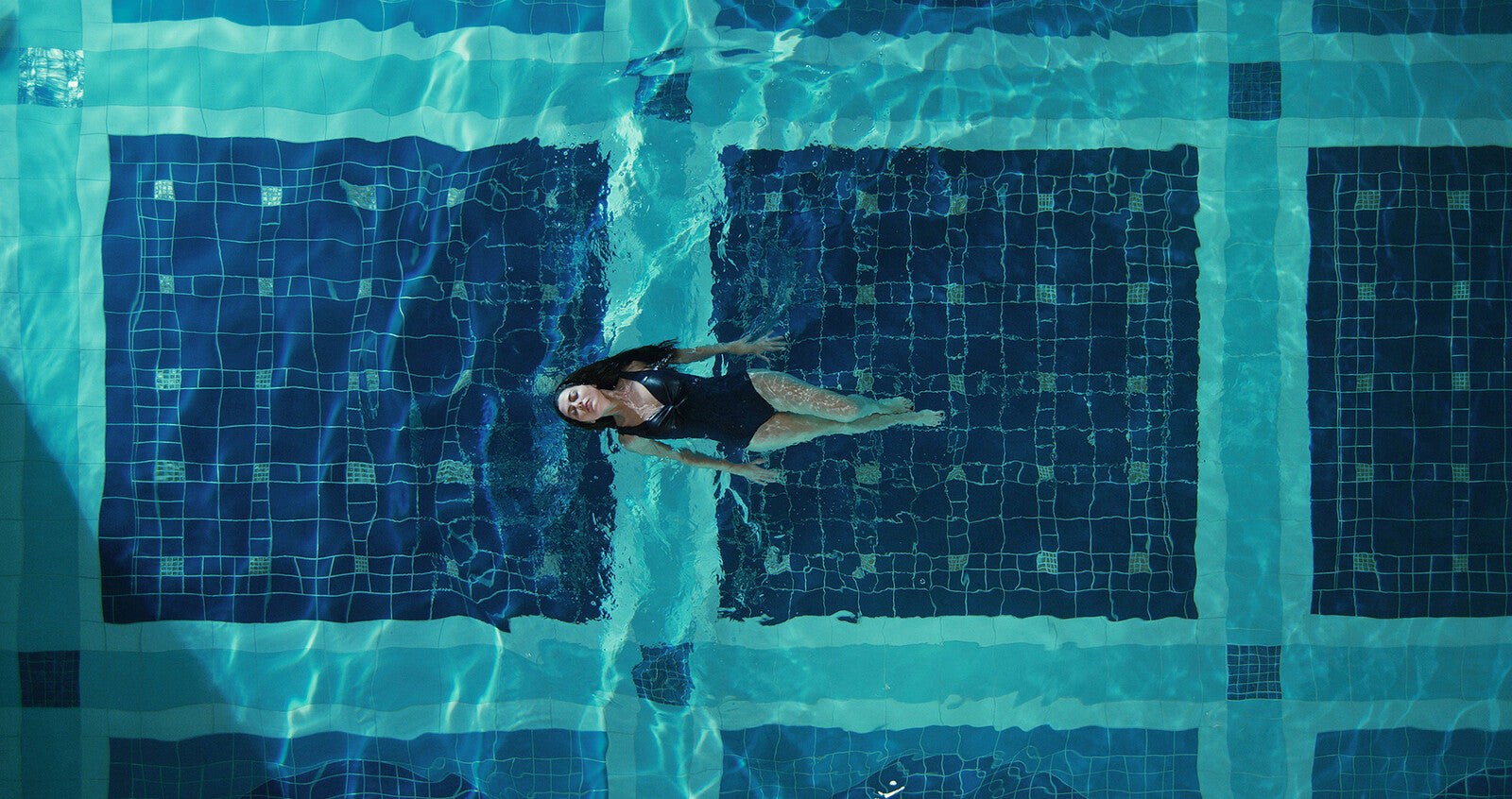Embarking on a wellness retreat is a time for deep rejuvenation, where participants detoxify, balance their emotions, and pursue a journey toward optimized health. One fundamental question that often arises is:
How well will I sleep during my wellness program?
We all know: sleep is crucial for consolidating the benefits of wellness practices, and for longevity. Yet it can be impacted by various factors within the program. In this blog post, we’ll try to give you a realistic picture of what to expect.
The Detox Effect: Cleansing Impacts Sleep Quality
Wellness programs frequently incorporate a detoxification pillar, whether through clean eating, hydration, or specialized therapies. Because indeed modern life clutters the natural cleansing functions of the body, so that there functions need to be restored during retreats.
When you detoxify, your body eliminates built-up toxins: many guests experience headaches, as well as disruptions in the sleep quality, especially around days 3-5 of in-depth programs.
Factors at play:
Increased hydration: most programs encourage participants to drink more water than they typically would, aiding the body’s cleansing process. However, this can result in nighttime awakenings as participants need to use the restroom.
Body adjustments: as toxins leave the body, some participants experience mild discomfort, headaches in particular, which can make it harder to fall asleep or stay asleep.
Tips:
Drink the bulk of your water earlier in the day, tapering off toward evening.
Consider selecting a program that offers a phased and structured detox phase to help you ease into this process.
If needed, talk to your doctor during your wellness program! Mention your sleep disruption and discuss if / how your treatments can be adjusted for better sleep quality.
An Active Mind: Mental and Emotional Impact on Sleep
Wellness retreats are often introspective experiences that encourage deep self-reflection. Many participants attend solo, using the time to reflect on life’s big questions. Many programs are based on low-calorie menus and anti-inflammatory food, which frees a lot of energy compared to the digestion of a regular meal. This energy often stimulates mental clarity (expect your dreams to be different) but can also activate the mind and hence disrupt sleep.
Why this affects sleep:
Intense Self-Reflection: with structured time and treatments for emotional balancing, journaling, and meditation, participants often find themselves reflecting on personal goals and challenges. Although these activities are fundamentally restorative, they can also heighten mental activity at night, making it harder to wind down.
Restricted-Calorie Nutrition: health wellness programs that reduce calorie intake (for detox purposes, for rejuvenation, and in some cases, for weight management) have been shown to boost mental alertness, sometimes resulting in racing thoughts at night. And sometimes, the coffee deprivation has some side effects, too.
Tips:
Try a guided meditation or gentle breathwork before bed to calm the mind. What works best for me then is to chant mantras: it harmonises the energies and soothes the monkey mind.
Ask us if you want a retreat with restricted calories, or without - both work really well, just with different approaches. If the feeling of a light stomach (fasting with food) or even an empty stomach (fasting retreats) is not for you, there are plenty of other life-changing retreats to choose from!
Opt for evening activities that work as a wind-down session for you, to help with relaxation. For me, this is typically evening classes about healthy life-style and nutrition, which are offered by certain retreats. Some retreats offer an outstanding library area: an evening with a good book by the fire, makes for a perfect sleep for me.
Evening Screen Time: A Modern Wellness Challenge
Many wellness programs have packed daytime schedules filled with treatments, consultations, and wellness activities, leaving the evening as free time. This is often when participants reconnect with family or catch up on work, leading to more screen time at night than they would typically have during a regular day.
Screen exposure before bed interferes with melatonin production, the hormone essential for sleep regulation, and increases brain activity, instead of letting the brain waves harmonise and slow down.
Tip:
Don’t take work with you during your wellness retreat ! (Easier said than done, I confess)
As during your day-to-day life, limit screen time for at least an hour before bed, opting instead for a calming activity like reading or gentle stretching.
Some retreats offer digital detoxes, which can enhance the sleep experience by minimizing evening screen exposure. But even digital detox retreats offer you a WiFi access in your room. Ideal set-up: some retreats have a switch to cut WiFi in your room when you decide it’s bedtime! I find it awesome.
Benefits: Wellness Programs Improve Sleep Quality, too
Despite the sleep challenges listed above, wellness retreats also offer significant benefits that can enhance the quality and effectiveness of sleep.
- Nutrient-Dense, Anti-Inflammatory Meals: Programs often emphasize detox food and anti-inflammatory menus, which promote deeper and more restorative sleep. Eating lighter, nutrient-rich meals helps you fall asleep faster and wake up refreshed.
- Physical Activity: Many wellness retreats integrate a range of physical activities, from yoga to guided nature walks. These activities help regulate your circadian rhythm, so you may find you sleep soundly with slightly fewer hours than you’re used to.
- Healing Treatments: Massages, bodywork, and other spa therapies release physical tension and dissolve blockages, often resulting in deep, rejuvenating sleep. Guests frequently report feeling like they “slept like a baby” after such treatments.
Tip:
Take full advantage of the treatments available. Consider a program that integrates both physical and relaxing elements to support sleep quality holistically.
If sleep is a problem during your wellness program, in particular, if you wake up around 3am in the night, try skipping dessert at dinner: sugar activates the liver, and the liver likes to wake you up around those hours. If the desserts are to die for in your retreat, enjoy them at lunch or in the afternoon snack!
Sign up for the morning rituals, such as sunrise yoga, early morning walk on the beach, stretching before breakfast, etc. Or if there is a spiritual component in your retreat, start your day with prayers or meditation. Think about this morning routine when you go to sleep: your mind will let you sleep the whole night, knowing there is something to look forward to when the sun rises again.
Practical Tips for Better Sleep During Your Wellness Retreat
If you’re planning a wellness retreat and want to ensure restful sleep, here are some practical strategies:
- Pace Your Hydration: Drink plenty of water / herbal teas but aim to reduce intake after 4pm to minimize nighttime awakenings. Avoid drinking water during meals anyway, as it just makes digestion more difficult
- Wind-Down Routine: After a full day, help your body relax by avoiding screens and opting for a calming routine, such as reading or listening to soft music.
- Embrace Evening Meditation or classes: Many wellness programs offer guided meditation sessions or conferences in the evening; this can help clear mental clutter before bedtime.
- Stick to a Sleep Schedule: Try to go to bed and wake up at consistent times, even on retreat. This will help your body adapt to a restful rhythm more quickly. This is particularly true if you traveled across time zones for your retreat, as you’re adjusting to jet lag in addition to the effects of your program on your body and mind.
Beyond Sleep: The Journey Towards Holistic Well-Being
It’s important to remember that while sleep is essential, wellness programs are designed to facilitate a profound journey toward well-being - in the long term. Luxury retreats design their programs in order to offer experiences that are as delightful as possible, while erasing the accumulated effects of - let’s face it - unhealthy lifestyles, sometimes for years.
There is no miracle - cleaning such accumulations of toxins and dealing with such profound tiredness, is an immense effort undertaken by your body and mind when you attend a life-changing program. Therefore, bear in mind: even if the experience disrupts your sleep initially, the long-term benefits—including reduced stress, increased mental clarity, and physical rejuvenation—are totally worth it. Guests leave wellness retreats feeling lighter, healthier, and more balanced than when they arrived.
Also, depending on how important sleep is for you, it is worth mentioning that some health wellness programs are specifically designed for sleep management and restoration! Our favorite ones are:








